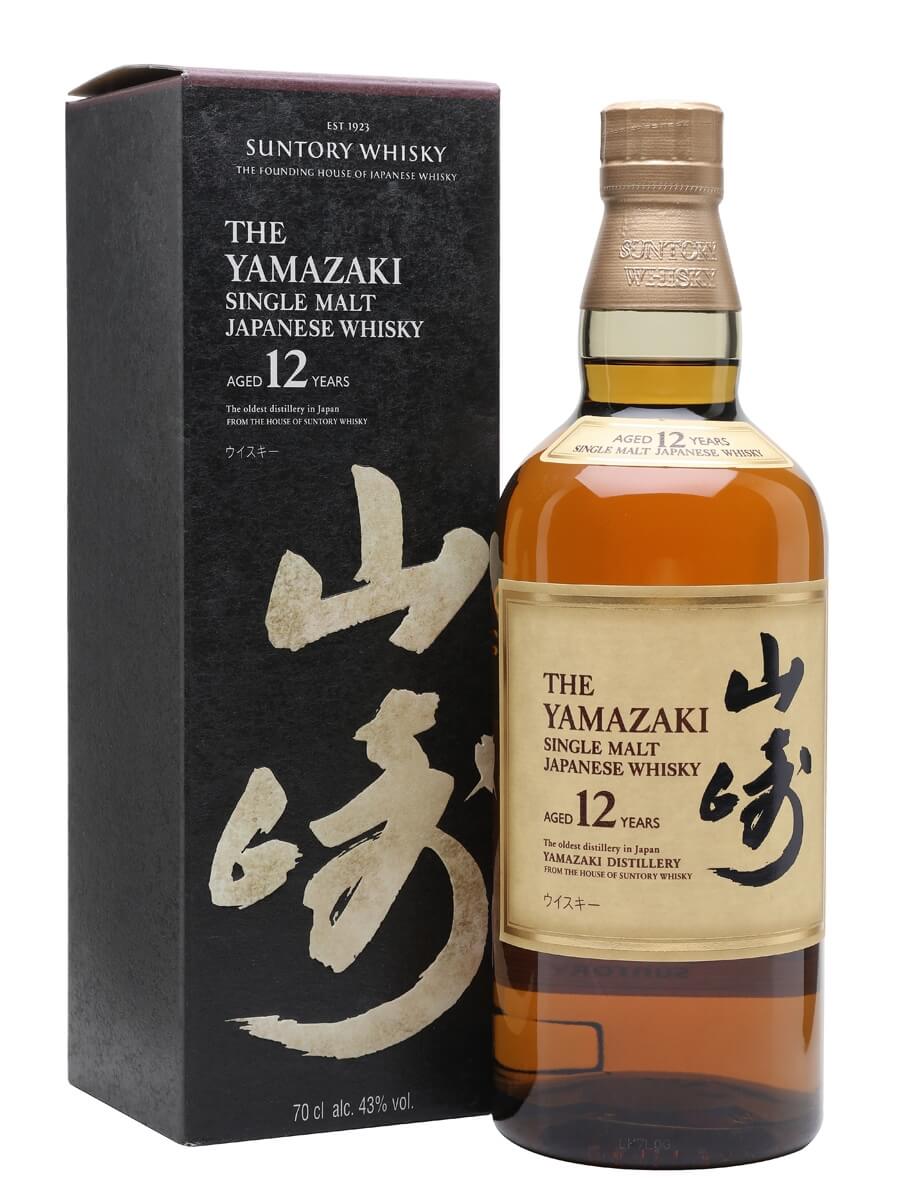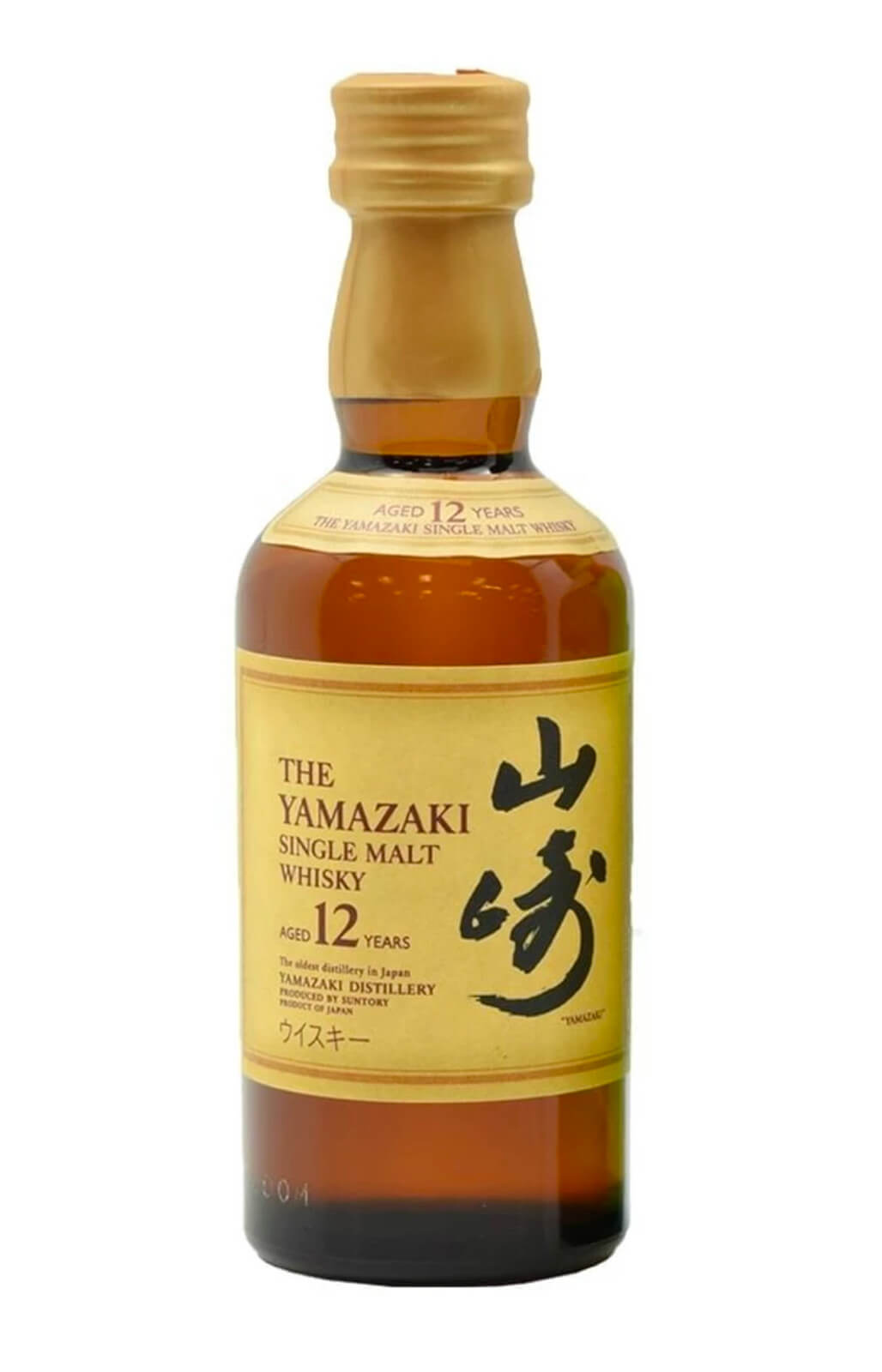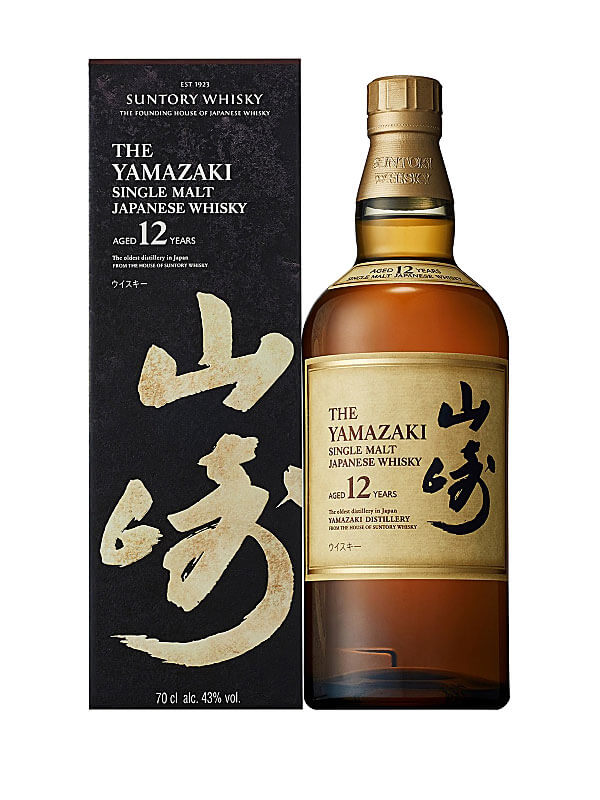Yamazaki 12-Year-Old Japanese Whisky: Why Pricing Has Gone Through The Roof
by Ken Gargett
There were a few teething problems when I first started compiling this piece.
Yamazaki 12-Year-Old from Japan is a whisky I have loved every time I have had the chance to try it. The bottle I sampled for this piece was actually one from the back of the cupboard, which I have been sitting on for far too long. When a mate saw it, he implored me not to open it.

Yamazaki 12-Year-Old Japanese whisky
“Way too expensive just to crack to drink,” he insisted, although I don’t buy bottles for resale so I have no idea what he was expecting me to do with it. As it has been with me for a long while, I would have picked it up when the price was still very reasonable, though I don’t recall exactly how much I paid.
Today, it is about AUD$350 (I would guess at least well over twice what I paid – it has risen more than 70 percent in the last two years and apparently is almost always sold at more than twice the producer’s recommended price, such is demand). Even worse, I recently came across a wine list in China offering a 30 ml glass for a mere $440!
But that is the problem across the board with Japanese whisky these days. Prices have gone through the roof.
There was a second problem. As soon as I started researching, I found numerous references to this Yamazaki being discontinued – many top Japanese whiskies have been, in fact, thanks to the shortages because of worldwide demand.
Non-age-statement whiskies have become much more common as, despite the construction of numerous new distilleries, they don’t have the necessary aged material and won’t for many years.
And if you think there is a problem now, the Rugby World Cup is about to kick off in Japan, bringing with it a great many well-heeled visitors who are expecting to drink and buy the best Japanese whiskies.
Even worse, next year Tokyo hosts the 2020 Olympics. Stock up soon or say goodbye for many years.
The good news is that my information suggests that the Yamazaki 12-Year-Old has not been discontinued, but that does not mean it will not be in the near future.

Yamazaki 12-Year-Old Japanese whisky
Suntory, the owner of Yamazaki and a number of other leading Japanese whiskies, has discontinued its Hibiki 17-Year-Old (which would have devastated Bill Murray’s character in Lost in Translation) and the Hakushu 12-Year-Old Single Malt.
Yamazaki did not release a limited edition for 2018, despite the huge popularity of these releases from 2015 to 2017.
#kenfessions: the author is a fan of Japanese whiskies
So with all that behind us, onward. No secret that I am a fan of top Japanese whiskies. Some may remember that we looked at a few of the astonishing whiskies from Chichibu, made by Ichiro Akuto. If any reader was interested, I hope you got in quickly.
Shortly after publication of that piece in May 2019, a full set of 54 bottles in Hanyu Ichiro’s Card Series, mentioned in the story, sold for HK$7,192,000 (just under a million bucks US!!).
Apparently, it was only one of four full sets remaining, although readers might recall that bottles from the series were known to languish on shelves for several years, considered almost unsalable only a few years before.
Yamazaki is part of the Suntory empire. Founded by Shinjiro Torii, it was Japan’s first commercial distillery. Opening way back in 1923 in Shimamoto in the Osaka Prefecture, the first whisky emerged in 1929, though to rather muted accolades.
The three core single malts in the range have been the 12-Year-Old, 18-Year-Old, and the 25-Year-Old, although it does seem that the 18-Year-Old is now on that dreaded discontinued list.
As much as I would have loved this to be about the 25, sadly none was to be found in the back of the magic cupboard. And with the price, if any was available these days, pushing AUD$6,000 a bottle, I am not holding my breath.
Yamazaki also does the occasional Sherry Cask, which was named in Jim Murray’s Whisky Bible as the “World’s Best Whisky” in 2013; various vintage-dated whiskies; and, on occasion, others such as a 10-Year-Old and even a 50-Year-Old.
A bottle of the latter set a record price for Japanese whisky at auction last year in Hong Kong, topping $343,000 (the winning bidder remained anonymous). That whisky was originally released in 2005 at a price around $9,000, which probably seemed outrageous at the time.
It was limited to just 50 bottles and it is believed that the majority, which went to various local bars, were opened and enjoyed soon after they landed. A second release of a further 50 bottles was offered in 2007 and then, in 2011, a final 150 bottles.
The early releases from the distillery, labelled “Suntory,” were unashamedly attempts to replicate Scottish whiskies.
The first master distiller, Masataka Taketsuru, had trained as both an organic chemist and whisky distiller in Scotland (it is believed that part of this sudden and unprecedented demand for quality Japanese whisky came about because of a 2014 TV drama based on his life).
Success eventually came when Shinjiro Torii launched the Kakubin label in 1937. No Yamazaki whisky appeared until its first single malt in 1984 thanks to Shinjiro Torii’s son, Keizo Saji, the distillery’s second master blender.
In 1992 Suntory added the 18-Year-old, a Ten-Year-Old in 1995, and subsequently its 25-Year-Old.

Yamazaki 12-Year-Old Japanese whisky
In 2003, the 12-Year-Old became the first Japanese whisky to win gold at the International Spirits Challenge. It was the start of a cavalcade of bling for its whiskies.
Yamazaki operates with both wooden and stainless steel fermentation tanks and uses different yeasts, depending on the final flavor profile the blenders seek. They use a dozen pot stills of varying shapes and sizes and a wide range of different oak for cask-ageing, including 180-liter roasted barrels, 230-liter hogsheads, American oak puncheons, Spanish oak casks, and even casks made from Mizunara (Japanese oak).
The 12-Year-Old matures in a mix of ex-Bourbon casks and American oak with a touch of material that has seen time in ex-Oloroso casks and Mizunara oak.
Yamazaki 12-Year-Old: tasting notes
The 12-Year-Old is a wonderful whisky. Notes of honey, cinnamon, and peach with a hint of toffee. Complex. This is great stuff. The merest whiff of white chocolate. There is a notable spirity character, but it is so well balanced and delightfully smooth. Terrific length. For a score, an easy 96.
I love this whisky. What a sad day to have acknowledge that it is likely to be one of those spirits that have become a special occasion only! Perhaps my mate was right.
For more please visit www.whisky.suntory.com/en/na/products/yamazaki.
*This story was first published on September 17, 2019 at Yamazaki 12-Year-Old Japanese Whisky: Why Pricing Has Gone Through The Roof.
You may also enjoy:
Chichibu Whisky: The Japanese Version Of Pappy Van Winkle
Lagavulin 16-Year-Old Whisky And Why Ron Swanson Was Right On The Money
Last Drop 1971 Blended Scotch Whisky: Is This The World’s Most Exclusive Whisky?
Leave a Reply
Want to join the discussion?Feel free to contribute!



When did this idiot write this article?
It says:
“And if you think there is a problem now, the Rugby World Cup is about to kick off in Japan, bringing with it a great many well-heeled visitors who are expecting to drink and buy the best Japanese whiskies.
Even worse, next year Tokyo hosts the 2020 Olympics. Stock up soon or say goodbye for many years.”
Japan hosted the Rugby World Cup in 2019! The 2020 Summer Olympics in Tokyo were postponed a year and held in July 2021!
It looks like good ol’ Ken Gargett simply recycled an article from two years ago and put today’s date on it!
It sounds like somebody didn’t read the “Reprise” in the title Stephen, or the line at the bottom stating that *This story was first published on September 17, 2019 at Yamazaki 12-Year-Old Japanese Whisky: Why Pricing Has Gone Through The Roof.”
Thanks for taking the time to comment, it’s always nice to hear from somebody that cares.
Regards, Ian
thanks for such a courteous response. had you bothered to take two seconds to read the headline on the home page, you would have seen it clearly marked as a ‘reprise’, as many of the articles are (just for the record, i have nothing to do with when and which articles appear).
perhaps it would be helpful you bothered to read what is there before slinging insults. might make you look less foolish.
Ah, yes, the word “reprise” surely is in the title. I was a reporter for three years and I have to admit that I don’t know the term.
I suppose that this can be explained by the fact that it was the policy at my company that we didn’t release old articles since it runs against the very definition of “news.”
Still, I guess I could have enjoyed Ken’s article for the nostalgia of the Japanese whisky market in 2019, and I look forward to reminiscing about discovering who won the 2020 US presidential election when you “reprise” that in a few years.
surely we can hardly be held responsible when it comes to your shortcomings in respect of the english language? it is neither an uncommon word nor a difficult one.
mind you, that might explain why your tenure as a reporter was so short.
for what it is worth, i have never considered myself a reporter and nor do i cover news in the sense to which you are referring. i imagine anyone looking for ‘news’ would hardly go to an article reprised from several years ago.
Despite your accusations that I was a poor reporter, during my tenure, I covered Japanese Finance Minister Kiichi Miyazawa, BOJ Governor Masaru Hayami, leading Japanese politicians, top government bureaucrats, and business leaders on a daily basis at Bridge News, which–at the time–was the world’s leading real-time financial newswire in the world (yes, larger than Bloomberg). Meanwhile, you’re at the quillandpen.com publishing out-of-date stories about Japanese whisky.
Moreover, I couldn’t help but to notice that you failed to capitalize the first letter of your sentences and that you appear to be wholly ignorant in the use of a comma.
Do you still want to talk trash about career, Ken?
Hi Stephen, as you may have learned during your stint as a reporter, news has become a commodity. While we do publish some news on Quill & Pad, the majority of our articles are informative and educational rather than “latest news.” The majority of our readers don’t arrive by clickbait titles, but by search engine recommendations.
Regards, Ian
What a useless repost…
I agree, a waste of time, but you got your click revenue — that was the point I’m sure. Perhaps provide some retrospect or updates on their availability? I love a good article as much as the next aficionado. At least put in some effort.
wow these comments are harsh!
I was all exited and elated reading the nice article, until the end! Thank you for making my drink taste better. This article also made me think of my Dad, a pillar of a man. Once,still a child, I called my doggie an idiot because he would not roll over.. My Dad pat me with a rolled up news paper, “D* only an idiot would call another an idiot”